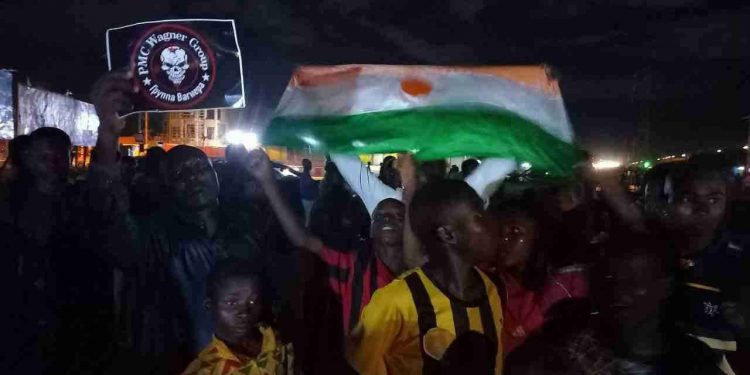Niger’s coup generals have reportedly sought assistance from the Russian mercenary group Wagner as the deadline approaches for the release of the country’s ousted president or face potential military intervention by the West African regional bloc, ECOWAS. General Salifou Mody, a coup leader, made contact with someone from Wagner during a visit to neighboring Mali, according to journalist Wassim Nasr from the Soufan Center.
The coup leaders believe that Wagner’s involvement would provide them with the necessary support to maintain their grip on power. However, this has raised concerns, given Wagner’s presence in Mali, where its forces have been accused of human rights abuses.
Niger’s military government faces a Sunday deadline set by ECOWAS to release and reinstate the democratically elected President Mohamed Bazoum, who has described himself as a hostage. ECOWAS has finalized an intervention plan and urged militaries to prepare resources, but its mediation team was not allowed to meet with the military government leader, General Abdourahmane Tchiani.
General Mody, after his visit to Mali, warned against military intervention, pledging that Niger would avoid becoming “a new Libya.” The situation in Niger is being closely watched, as the country has been considered a reliable counterterrorism partner for the West in a region where coups have been frequent. However, the military leaders have recently turned to Russia, distancing themselves from former colonizer France.
The potential involvement of Wagner has raised questions about the international community’s response. In Mali, when Wagner arrived, the French military’s partnership was terminated, and the United States later designated Wagner as a “terrorist” organization. International partners might react strongly to Wagner’s involvement in Niger, considering the significant security threat in the region.
The situation in Niger remains uncertain, and it is unclear what a regional intervention would entail, when it would begin, or if it would receive support from Western forces. The military government has called on the population to watch for spies, leading to the formation of self-organized defense groups monitoring the capital.
While some in Niger brace for potential conflict, others are struggling with travel and economic sanctions imposed by ECOWAS after the coup. The sanctions have closed land and air borders with ECOWAS countries and suspended commercial and financial transactions, resulting in rising prices of goods and limited access to cash.

